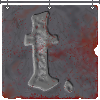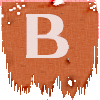Q1. What's the biggest challenges you see facing Alter Aeon. I'm thinking here in four major arenas: attracting new players, maintaining the high quality of coding and areas, regulating the game so that it's a safe enjoyable environment for players, and any other major concerns that I maybe didn't cover in the first three areas?
My biggest challenge for AA right now is how to make it more self sufficient.
I need to be able to step away from it and let things run on their own. I need
to be able to trust the builders, moderators, and players to largely do the right
thing and to really only need my intervention for important stuff. We're making
a lot of progress on this, but the stream of minor bug fixes seems never ending,
and I pretty much have to just ignore them if I plan to get anything else done.
Regarding your specific arenas:
1) Attracting new players is hard. Really, really hard. It's so hard that I think the best approach right now is to simply be the best game out there, to get and keep our players, and to make them want to bring in friends. This kind of organic growth is slow, but it does work, if you have something really good to offer.
That said, the market for muds really is shrinking, no matter what anyone says. Alter Aeon, with an average of 70 or so players, is in the top ten, where 15 years ago, 70 players wouldn't even have garnered a mention. Part of the reason we've been able to do that is because I recruit outside the so called 'mud community', and go for true newbies who would never have seen a mud before. Recruiting outside the mud community is part of why why getting new players is so hard, but as the community shrinks and collapses, it also means we won't feel the effects nearly as much. That to me seems worth the extra work.
2) Maintaining the high quality of the game is actually getting easier and easier. A lot of the quality control of the last few years has been code based, not human based. In fact, most of the improvement in quality control is because we've removed humans from the checking process.
One improvement I have yet to make is a project based building management system. I personally have huge difficulty handling builders and figuring out what is going on and being built at any given point of time. Having a list of what is in progress, and requiring builders to send me periodic status reports would help me a lot.
3) The safe, enjoyable environment for players is something I've been actively working on the last year or so. I've been reading a lot of papers and articles about online communities and community culture, and I've decided that the old culture of negativity and asshole behaviour needs to stop. If someone is so unhappy with the game that they feel the need to badmouth it all the time, I'm ok with simply writing that player off and telling them that they're no longer welcome, that they need to find a new place to play. It doesn't do anyone any good to have players like that around, and hopefully they can find something they enjoy again.
I've also been cracking down on asshole behavior, and I've been trying to set a better example of how not to be an asshole. The new moderator system has helped a lot, not because it punishes people, but because it provides a quick and effective way for people to know they're outside the bounds of a channel. I maintain that most people have the potential to be awesome, positive players - it's just that we all need to be reminded of what that means and what is or isn't acceptable.
4) The only other major concern is how to add features without sacrificing or breaking long term game play. It's very humbling to think that a single minor change, allowing primary thief characters to be untrippable, completely destroyed the balance of Hidden Worlds in 1994.
I have to continually be on my toes, I have to watch, predict, talk to players, and think very hard before I do things - but even more importantly, I have to say 'wow that was a really stupid idea', and I have to dent things. I have to have the guts to face down the players and say, 'I know it sucks, but this cannot be allowed to continue'. I have to do those things no matter the short term consequences, because the tragedy of the commons spares no one.
Regarding your specific arenas:
1) Attracting new players is hard. Really, really hard. It's so hard that I think the best approach right now is to simply be the best game out there, to get and keep our players, and to make them want to bring in friends. This kind of organic growth is slow, but it does work, if you have something really good to offer.
That said, the market for muds really is shrinking, no matter what anyone says. Alter Aeon, with an average of 70 or so players, is in the top ten, where 15 years ago, 70 players wouldn't even have garnered a mention. Part of the reason we've been able to do that is because I recruit outside the so called 'mud community', and go for true newbies who would never have seen a mud before. Recruiting outside the mud community is part of why why getting new players is so hard, but as the community shrinks and collapses, it also means we won't feel the effects nearly as much. That to me seems worth the extra work.
2) Maintaining the high quality of the game is actually getting easier and easier. A lot of the quality control of the last few years has been code based, not human based. In fact, most of the improvement in quality control is because we've removed humans from the checking process.
One improvement I have yet to make is a project based building management system. I personally have huge difficulty handling builders and figuring out what is going on and being built at any given point of time. Having a list of what is in progress, and requiring builders to send me periodic status reports would help me a lot.
3) The safe, enjoyable environment for players is something I've been actively working on the last year or so. I've been reading a lot of papers and articles about online communities and community culture, and I've decided that the old culture of negativity and asshole behaviour needs to stop. If someone is so unhappy with the game that they feel the need to badmouth it all the time, I'm ok with simply writing that player off and telling them that they're no longer welcome, that they need to find a new place to play. It doesn't do anyone any good to have players like that around, and hopefully they can find something they enjoy again.
I've also been cracking down on asshole behavior, and I've been trying to set a better example of how not to be an asshole. The new moderator system has helped a lot, not because it punishes people, but because it provides a quick and effective way for people to know they're outside the bounds of a channel. I maintain that most people have the potential to be awesome, positive players - it's just that we all need to be reminded of what that means and what is or isn't acceptable.
4) The only other major concern is how to add features without sacrificing or breaking long term game play. It's very humbling to think that a single minor change, allowing primary thief characters to be untrippable, completely destroyed the balance of Hidden Worlds in 1994.
I have to continually be on my toes, I have to watch, predict, talk to players, and think very hard before I do things - but even more importantly, I have to say 'wow that was a really stupid idea', and I have to dent things. I have to have the guts to face down the players and say, 'I know it sucks, but this cannot be allowed to continue'. I have to do those things no matter the short term consequences, because the tragedy of the commons spares no one.










